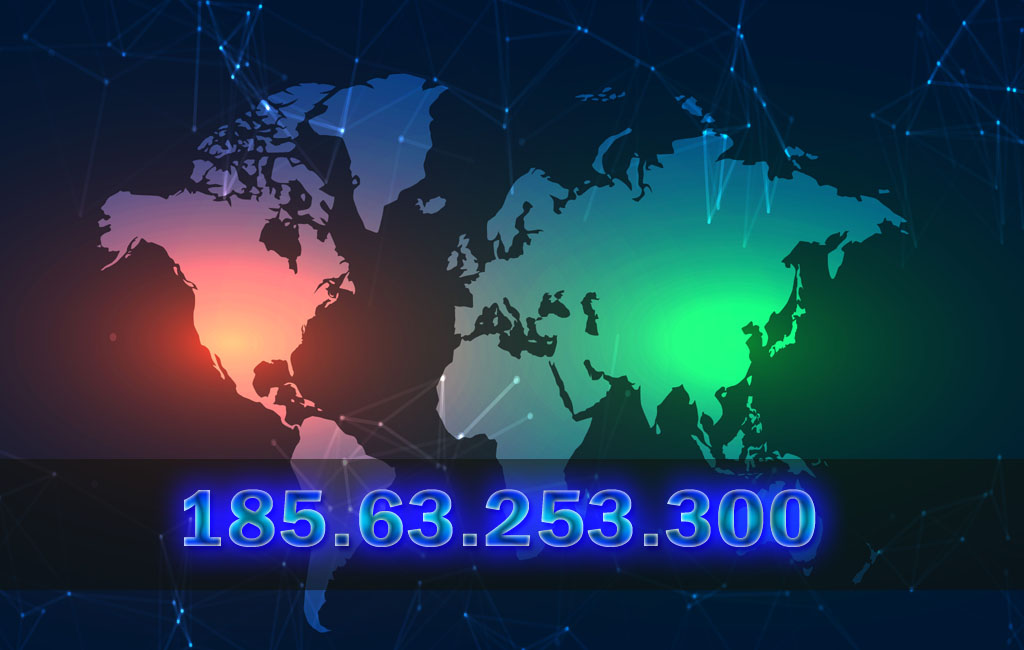Every device connected to the internet relies on an IP address. It serves as a unique identifier that allows servers, websites, and users to communicate seamlessly across networks. Among the billions of IPv4 addresses, 185.63.253.300 stands out as one that often appears in searches related to hosting, geolocation lookups, and cybersecurity checks.
What is 185.63.253.300?
Understanding IPv4 Format
The IP 185.63.253.300 belongs to the IPv4 addressing system. IPv4 addresses follow a numeric format divided into four octets separated by dots, each ranging from 0 to 255. This addressing method creates around 4.3 billion unique addresses, many of which are allocated to hosting providers, ISPs, and individual users.
While IPv6 is gradually taking over due to IPv4 exhaustion, IPv4 addresses like 185.63.253.300 remain widely used across the globe.
Why People Search for Specific IPs
- Geolocation lookup: Finding out where the IP is registered.
- Hosting provider identification: Checking which company owns the IP block.
- Security monitoring: Investigating suspicious traffic or potential threats.
- SEO research: Identifying hosting origins of competitor websites.
Geolocation and Ownership of 185.63.253.300
IP Geolocation Basics
Geolocation refers to identifying the approximate physical location of an IP address. While it doesn’t give exact street-level details, it can often pinpoint the country, region, and ISP.
For 185.63.253.300, a geolocation lookup may reveal information such as:
- Country of origin
- City or region
- Autonomous System (ASN) owner
- ISP or hosting company
Why Geolocation Matters
- Cybersecurity: Helps identify suspicious login attempts from unexpected regions.
- Digital Marketing: Provides insights into where website visitors are coming from.
- Compliance: Businesses can restrict access to content based on regional regulations.
Is 185.63.253.300 Safe?
When analyzing an IP address, safety becomes a major concern. An IP like 185.63.253.300 could be used for legitimate hosting purposes, but it might also appear on blacklists if linked to malicious activities.
Security Risks to Consider
- Spam and Phishing: Some IPs may be flagged for sending unsolicited emails.
- Malware Hosting: Certain addresses host malicious files or exploit kits.
- DDoS Attacks: IPs can be part of botnets used for large-scale attacks.
Checking IP Reputation
- Blacklist checks using online tools.
- WHOIS lookups to see ownership details.
- Traceroutes to track routing paths.
Common Uses of 185.63.253.300 in Networking
- Web Hosting Servers – Many hosting companies allocate IPs to websites for public access.
- Email Servers – Used in sending and receiving digital communications.
- VPNs or Proxy Services – IPs may be tied to anonymizing networks.
- SEO Research – Identifying competitor server locations or hosting providers.
- Forensic Analysis – Cybersecurity teams track IPs to identify attack origins.
How to Check Information About 185.63.253.300
WHOIS Lookup
WHOIS databases provide public information about IP ownership. By entering 185.63.253.300 into a lookup tool, you can often see:
- The organization that owns the IP.
- Contact details for the hosting company.
- ASN numbers and allocation ranges.
Reverse DNS Checks
Reverse DNS allows you to see if an IP address like 185.63.253.300 is tied to a domain name. This helps identify whether the IP is hosting a legitimate website.
Blacklist and Reputation Checks
To ensure an IP is safe, online tools like Spamhaus, AbuseIPDB, and MXToolbox can check if the IP is flagged for malicious activity.
Traceroute Testing
By running a traceroute to 185.63.253.300, users can visualize the network path and latency, providing insights into routing performance and potential vulnerabilities.
Why Monitoring IPs Like 185.63.253.300 Matters
- Preventing Fraud: Detect suspicious activity from unfamiliar IPs.
- Protecting Websites: Block traffic from known malicious addresses.
- Improving SEO: Understand server origins to avoid bad neighborhood hosting.
- Enhancing Performance: Track network routes for better optimization.
The Role of IPs in Cybersecurity
IPs and Threat Intelligence
Cybersecurity systems rely on IP data like 185.63.253.300 to detect patterns of attack. Threat intelligence platforms collect, categorize, and share IP addresses known for suspicious behavior.
Blocking and Filtering
Firewall systems often block traffic from dangerous IPs. If this IPs is blacklisted, administrators may configure automatic filters to deny access.
Importance for Businesses
Companies that manage online platforms must stay vigilant. An overlooked IP could become the source of data breaches, spam campaigns, or denial-of-service attacks.
SEO Implications of 185.63.253.300
- Server Location and SEO: Search engines sometimes factor in hosting location. If this IPs is hosted in a different region than your audience, it may slightly influence rankings.
- Shared Hosting Risks: If multiple sites share the same IP and one is flagged for spam, others may suffer reputational damage.
- Crawlability and Speed: IP routing efficiency affects how fast bots and users reach your site.
Conclusion
The IP address 185.63.253.300 is more than just a number in the vast IPv4 pool — it represents a digital identity tied to servers, hosting providers, and online activities. From geolocation to cybersecurity, monitoring and analyzing such IPs is essential for protecting networks, optimizing websites, and ensuring safe digital experiences.
Whether you’re a webmaster, SEO specialist, or cybersecurity professional, understanding addresses like this IPs gives you a sharper insight into how the internet functions and how to safeguard your presence online.
Frequently Asked Questions About 185.63.253.300
1.What is 185.63.253.300?
this IPs is an IPv4 address that may be associated with a hosting provider, server, or network infrastructure. It is often checked for geolocation, ownership, and security purposes.
2. Who owns 185.63.253.300?
The ownership of 185.63.253.300 can be identified through a WHOIS lookup, which shows the ISP or hosting company responsible for this IP address.
3. Where is 185.63.253.300 located?
The location of this IPs can be found using geolocation tools. These tools can reveal the country, region, and sometimes city of the IP address.
4. Is 185.63.253.300 safe?
The safety of this IPs depends on its use. Running a blacklist check or reputation analysis can help determine if it is flagged for spam, malware, or suspicious activity.
5. Why is 185.63.253.300 showing up in my logs?
If you see this IPs in your server or firewall logs, it could mean the IP attempted to connect to your system. This may be normal web traffic or, in some cases, unwanted access attempts.
6. Can 185.63.253.300 be blacklisted?
Yes, if 185.63.253.300 is associated with spam, phishing, or malicious activity, it can be placed on security blacklists used by ISPs, email providers, and security systems.
7. How do I check the reputation of 185.63.253.300?
You can check the reputation of 185.63.253.300 using tools like Spamhaus, AbuseIPDB, MXToolbox, or VirusTotal, which report if an IP has been flagged.
8. Can 185.63.253.300 affect my website SEO?
If your website is hosted on 185.63.253.300 and the IP is shared with other sites engaged in spam or malicious behavior, it may negatively affect your SEO reputation.
9. How do I block 185.63.253.300?
To block 185.63.253.300, you can configure firewall rules, .htaccess directives, or use a web application firewall (WAF) to deny traffic from this IP.
10. Why do people search for 185.63.253.300?
People search for this IPs to identify its hosting provider, check if it is safe, verify geolocation, or analyze unusual activity related to cybersecurity and SEO.



